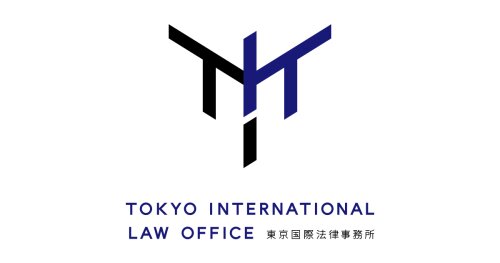Best Environmental Law & Compliance Lawyers in Tokyo
Share your needs with us, get contacted by law firms.
Free. Takes 2 min.
List of the best lawyers in Tokyo, Japan
About Environment Law in Tokyo, Japan
Environment law in Tokyo, Japan, encompasses a range of regulations and standards designed to protect the natural surroundings, address pollution, manage waste, and conserve natural resources within the city. These laws are a combination of national legislation and local ordinances that aim to minimize environmental impact and promote sustainability within Tokyo's unique urban setting. The legal framework includes measures to control air and water quality, regulate noise pollution, manage green spaces, and ensure responsible waste disposal among other environmental concerns.
Why You May Need a Lawyer
Individuals and businesses may require legal help in environmental matters for various reasons. Legal assistance can be vital if you are a business owner facing regulatory compliance issues or if you need to understand the environmental impact assessment procedures for a new project. Property developers might need help navigating the complex zoning laws that include environmental regulations. Residents may seek legal advice when they believe their rights to a clean and healthy environment are being infringed upon. In cases of environmental harm or disputes, a lawyer experienced in environmental law can provide guidance and representation.
Local Laws Overview
Key aspects of local environmental laws in Tokyo include strict standards for air and water quality, rules for waste management, and regulations for noise control. Tokyo Metropolitan Government has its own environmental policies that align with national laws but are tailored to the city’s specific needs. The Tokyo Environmental Master Plan outlines the long-term vision for a sustainable city. There are specific laws concerning the proper handling and disposal of industrial waste, measures to combat climate change, incentives for utilizing renewable energy, and ordinances to maintain and increase green space within the metropolis.
Frequently Asked Questions
What should I do if my business is accused of violating environmental laws in Tokyo?
If your business is accused of environmental law violations, it's important to consult with a lawyer who specializes in Japanese environmental law immediately to understand the accusations and prepare an appropriate response.
How are noise complaints handled in Tokyo?
Noise complaints in Tokyo are managed through local regulations, and there are set decibel limits depending on the time of day and zone. Complaints can be directed to the Tokyo Metropolitan Government.
Can I challenge an environmental impact assessment decision?
Yes, it is possible to challenge the decision of an environmental impact assessment (EIA) with the help of a lawyer if you believe the assessment was flawed or incomplete.
What are my legal responsibilities for waste management as a business owner?
As a business owner in Tokyo, you are required to follow specific waste management procedures, including sorting waste and ensuring proper disposal according to local regulations.
Is there legal protection for urban green spaces in Tokyo?
Urban green spaces in Tokyo are protected by various laws and ordinances that mandate their preservation and creation within development projects.
How can a lawyer help with securing permits for new construction?
A lawyer can provide guidance through the application process for environmental permits and ensure that all regulations are adhered to in the planning stages of new construction.
What should I do if my property is contaminated?
If your property is contaminated, seeking legal advice is crucial to understanding remediation responsibilities and potential liability issues.
Who enforces environmental laws in Tokyo?
Environmental laws in Tokyo are enforced by both national and metropolitan government agencies, dependent on the specific regulation in question.
Can residents participate in the development of environmental policies?
Yes, residents can participate in public consultations and contribute to the development of environmental policies through various community engagement initiatives.
What are the consequences of not complying with environmental regulations?
Non-compliance with environmental regulations can result in penalties, fines, and legal action against individuals or businesses responsible.
Additional Resources
For those in need of legal advice on environmental issues, resources include the Tokyo Metropolitan Government's Environmental Bureau, the Ministry of the Environment, and non-governmental organizations (NGOs) focused on environmental protection in Japan. Additionally, there are legal aid societies and environmental law firms that provide services in Tokyo.
Next Steps
If you require legal assistance in environmental law, the next step is to contact a qualified environmental lawyer or law firm in Tokyo. It is advisable to seek a lawyer with experience in the field relevant to your issue, whether it is compliance, dispute resolution, or representation in legal proceedings. To prepare for your consultation, gather all pertinent information and documents related to your environmental concern. With the right legal support, you can navigate the complexities of environmental regulations and advocate for your interests effectively.
Lawzana helps you find the best lawyers and law firms in Tokyo through a curated and pre-screened list of qualified legal professionals. Our platform offers rankings and detailed profiles of attorneys and law firms, allowing you to compare based on practice areas, including Environmental Law & Compliance, experience, and client feedback.
Each profile includes a description of the firm's areas of practice, client reviews, team members and partners, year of establishment, spoken languages, office locations, contact information, social media presence, and any published articles or resources. Most firms on our platform speak English and are experienced in both local and international legal matters.
Get a quote from top-rated law firms in Tokyo, Japan — quickly, securely, and without unnecessary hassle.
Disclaimer:
The information provided on this page is for general informational purposes only and does not constitute legal advice. While we strive to ensure the accuracy and relevance of the content, legal information may change over time, and interpretations of the law can vary. You should always consult with a qualified legal professional for advice specific to your situation.
We disclaim all liability for actions taken or not taken based on the content of this page. If you believe any information is incorrect or outdated, please contact us, and we will review and update it where appropriate.










